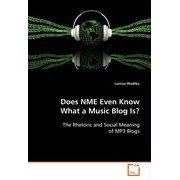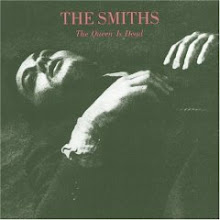
Conflict is a major part of human nature - it has been present since there were human beings and it is a fundamental part of our lives. There would be no stories without it - characters must fight against something otherwise there's no point to the story. It is also the way we make decisions and understand things - dialectic can be very beneficial for teasing out complicated problems. However, the one problem humans have never solved is how to stop their natural propensity for conflict from escalating into full-blown violent conflict.
Wars and battles litter history with corpses around the world with the main shift being weaponry. Weapons grew more and more efficient just as the propaganda elements that accompany war grew more and more sophisticated. Most wars today are fought via information - ideology and psychology are the prime weapons of choice. Just take a glance at an American PSYOP manual. If you persuade an enemy to give up before he/she even begins to fight, then you have conquered humans more totally than if you had destroyed their bodies. Humans constantly reassemble themselves into power structures with the goal of having more power over another, thus nations do the same for the exact same reasons on a global scale. I'm cynical enough to think this will never stop. My only hope is that more nations will opt for imperfect diplomacy over the staggering cost of war. It is the equivalency of two people having a heated argument rather than stepping outside and beating each other up.
Wars and battles litter history with corpses around the world with the main shift being weaponry. Weapons grew more and more efficient just as the propaganda elements that accompany war grew more and more sophisticated. Most wars today are fought via information - ideology and psychology are the prime weapons of choice. Just take a glance at an American PSYOP manual. If you persuade an enemy to give up before he/she even begins to fight, then you have conquered humans more totally than if you had destroyed their bodies. Humans constantly reassemble themselves into power structures with the goal of having more power over another, thus nations do the same for the exact same reasons on a global scale. I'm cynical enough to think this will never stop. My only hope is that more nations will opt for imperfect diplomacy over the staggering cost of war. It is the equivalency of two people having a heated argument rather than stepping outside and beating each other up.
I'm a believer in education and critical thinking. Young people need to be supplied with challenges that force them to think about a problem from all sides. Wearing a poppy for one week a year is far less important than continually teaching youth about the root and persistence of war. They need to see why it happens and they need to see the fact that it always happens. They also need to know that terms like democracy and freedom are loaded terms ready for people in power to aim and fire. And that patriotism can so easily slip into inhumane scapegoating. It would be nice if inhumane would actually mean what it's supposed to, but I fear that being human is often what is associated with the most inhumane attributes. The semantics of the words humane and inhumane assume that humans are naturally moral, naturally progressive. It's hard to see much truth in that when you look at the big picture of war and power struggle.
People often seem to worry that once veterans of the two World Wars have died, Remembrance Day will seem less tangible, less significant for newer generations. I don't think that will be the reason for younger people's lack of concern for soldiers and war. Frankly, as a child, Remembrance Day didn't ever have a huge impact on me even with veterans present at the school assembly. Until war drops on your doorstep, you'll never fully understand its full import. Most of us are quite complacently insulated from the violent conflicts currently happening - they're in the Middle East, Africa, South America, and Asia. Yes, we hear story after story in the news about people fighting and dying, but only until we are desensitized enough to see them as merely stories. After all, stories aren't stories without conflict.
Remembrance Day - B-Movie
Poppy Day - Siouxsie and the Banshees





















































1 comment:
Brilliant post. I frigging love your blog! I'm sitting in the Toronto Public Library, wearing my poppy, and nodding at everything you wrote. Good job!
Post a Comment